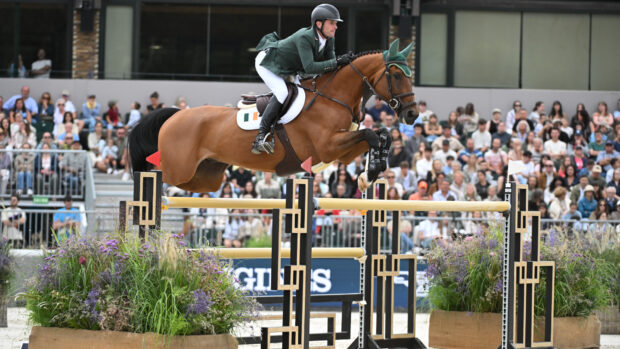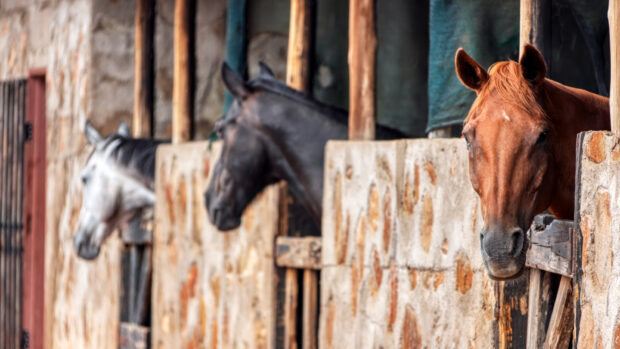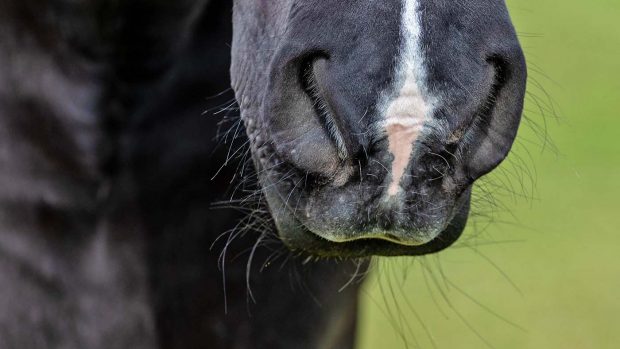Eliminations in showjumping have come under discussion as a new welfare-related rule giving judges the power to stop combinations mid-round comes into force.
H&H reported that new rules had been approved at the FEI General Assembly across the disciplines (news, 24 November). Under one of the new 2023 showjumping rules, the president of the ground jury, or in their absence a designated ground jury member, may ring the bell to eliminate a combination while a round is ongoing if it is decided it would be “contrary to the principles of horse welfare to allow the combination to continue”. The decision is final and not subject to appeal or protest.
The rule was proposed by the Swedish equestrian federation following the Tokyo Olympics, where a combination completed a showjumping round despite the horse bleeding from the nostrils. But the new rule does not refer specifically to blood.
During the rules revision process, the FEI said there were “too many cases that could lead to such an elimination” and it was not deemed possible to list them all – and if the new rule “appears problematic in its implementation during 2023, it could be reviewed for 2024”.
The rule was a major talking point at the International Jumping Riders Club (IJRC) general assembly last month, with many riders disagreeing with its implementation and raising concerns about the training and experience needed by the ground jury to make such a call, especially at championships. The IJRC said at first it had not been in favour of the rule, but it changed its opinion because it is “important that the riders and the IJRC stand up for the wellbeing of horses”.
After the Tokyo Games, Nick Skelton said in his H&H column (12 August 2021) that the rules around when the bell is rung needed to be clearer and suggested having a professional rider in the judges’ box to help make this call, a suggestion he repeated during the IJRC meeting.
During the meeting, Belgian showjumper Pieter Devos agreed with Nick and said a judging panel including a rider should be formed for championships.
“At championship level, I think there must be the option [for a panel]. This is the only way,” said Pieter.
“On the other hand, at the lower levels it is important that there is a rule like we are talking about. But it’s very complicated in my opinion to have people who never sit on a horse, with all respect, judge whether people finish a round or not.”
Nick proposed trialling a panel at an event such as a Nations Cup to see how it works, and Brazilian Olympic rider and FEI athlete representative Rodrigo Pessoa said the suggestion will be made [to the FEI].
Former Olympic showjumper Graham Fletcher told H&H it would be a difficult decision for officials to make, but in principle he believes the new rule is “right”.
“You need people that have a horsey background, as well as knowing all the rules and regulations, and who know the difference between a rider that has been hard on a horse, or ones basically giving them a strong ride,” he told H&H, adding that he agrees with the suggestion of having a rider on a judging panel to help judges with these decisions.
“It’s a very fine line between a horse that’s maybe had just a little spook at a fence and will jump the next time, and one that’s had a complete crash and is turned round to have another go. I think it’s a hard ask to ask somebody to stop someone in the ring and I think they certainly need an ex-rider or pro alongside them to advise.”
Graham added that he would also like to see more action taken when a rider shows frustration after a difficult round.
“Every now and again, you see a rider who’s had a disappointing round and they’re riding the horse a bit rough out of the ring and taking it out on the horse. For me, a jury should step in then and reprimand that rider. It’s awful to watch and as we try to make our sport more consumer friendly, everything has to be done to do that.”
FEI level three judge and British Showjumping (BS) judge Joanna Gillespie, who has officiated at shows in the UK and abroad, told H&H the sport has to be seen by the public to be looking after the welfare of the horse. She added that if she believed a horse’s welfare was being put at risk during a round, she would be happy to eliminate the combination.
“Horse welfare is top of the agenda,” she said. “When eliminating someone, if a horse is going badly and is clearly not happy, then I would be content to eliminate it. It might end up unsound after the round, if allowed to continue.
“A lot of professional riders know when there’s something wrong and they do pull their horses up, but there are a lot of riders who just continue, so I think elimination is something that should be considered. We have had this rule in BS now for sometime: ‘If in the opinion of the judges, a horse or rider is unfit to compete, the judges may prevent the competitor from starting or may curtail their round.’ In FEI & BS competitions, you would have a quick discussion with your fellow officials [before eliminating].”
Mrs Gillespie added that FEI judges, stewards and course-designers receive full training.
“We complete an online assessment every year and every three years we have to attend an assessment in person. Our training is definitely being upgraded for making the decisions under the new rules on welfare of the horse,” she said.
You might also be interested in:

New rules on blood-related eliminations and dangerous riding

Nick Skelton on Tokyo 2020: ‘The new showjumping format was a disaster’

Subscribe to Horse & Hound magazine today – and enjoy unlimited website access all year round
Horse & Hound magazine, out every Thursday, is packed with all the latest news and reports, as well as interviews, specials, nostalgia, vet and training advice. Find how you can enjoy the magazine delivered to your door every week, plus options to upgrade your subscription to access our online service that brings you breaking news and reports as well as other benefits.



